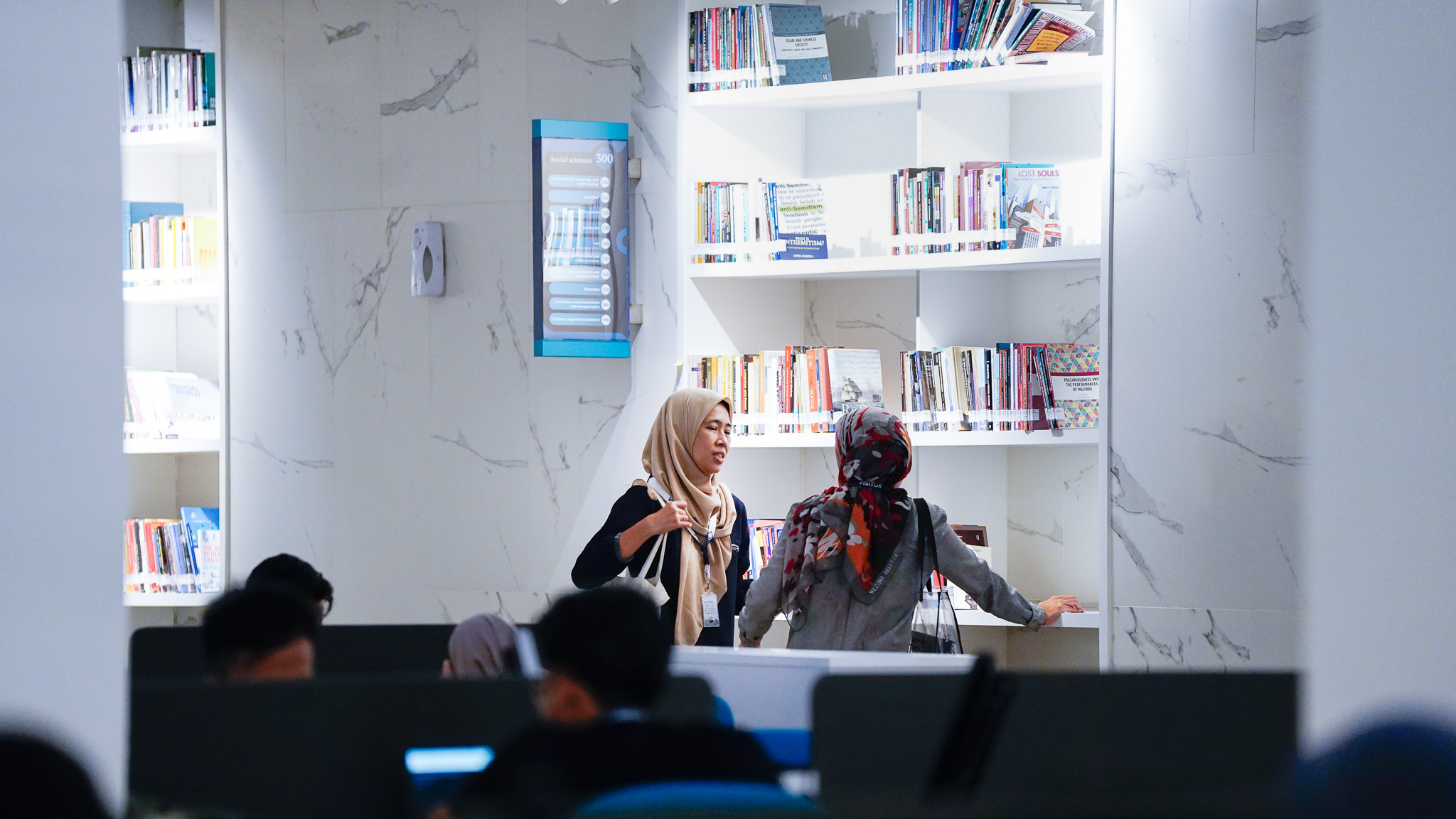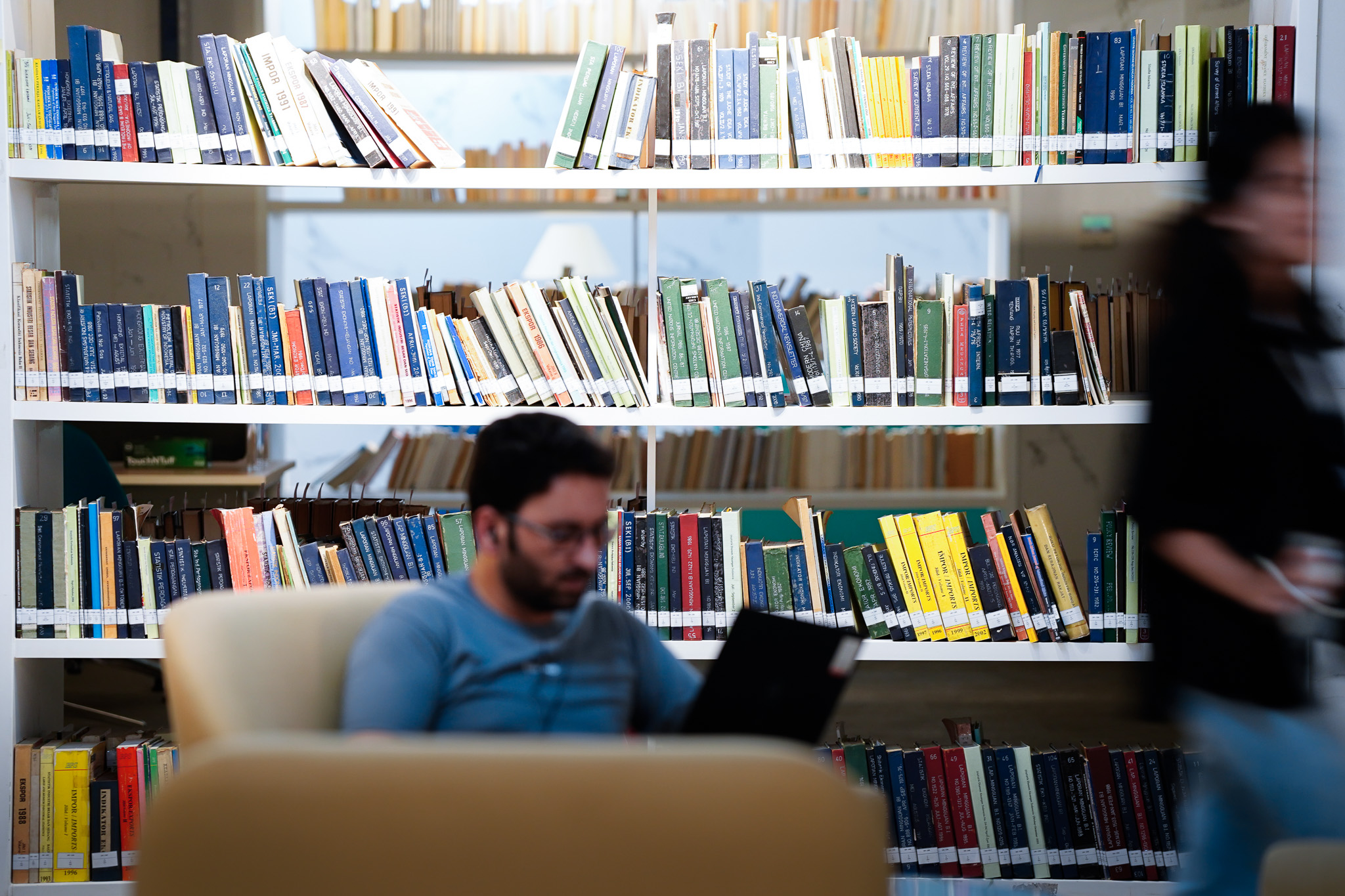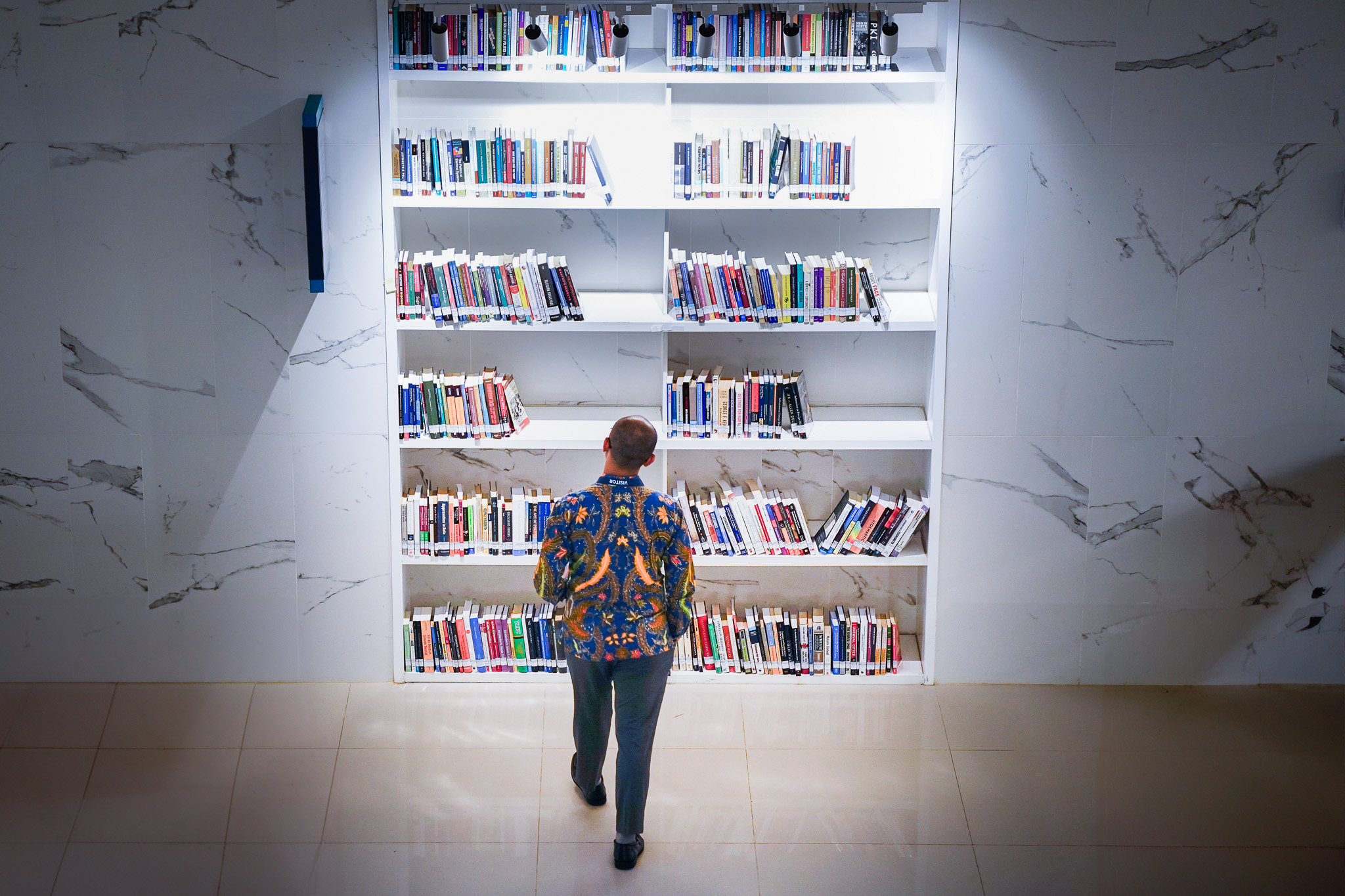Social Media Sensation: UIII’s Jusuf Kalla Library Becomes Depok’s Viral Study Haven

DEPOK, Indonesia — The Jusuf Kalla Library, located in the quiet suburban landscape of Universitas Islam Internasional Indonesia (UIII), has found itself at the center of a social media whirlwind. What began as a modern educational project for Indonesia has quickly become a viral sensation, attracting close to 1,000 daily visitors after TikTok and Instagram posts showcased its inviting study spaces and picturesque gardens.
When it opened in Depok few years ago, few expected Jusuf Kalla Library would gain traction so quickly. However, thanks to a string of viral videos on TikTok highlighting its serene interiors, lush gardens, and architectural elegance, the library has become Depok’s unexpected cultural phenomenon. The library’s ticketed access of Rp 10,000 hasn’t deterred visitors but rather seems to have underscored its appeal as a premium space for those seeking affordable leisure with a side of literacy.
As Wahyuning Kurniawati reported for InfoMase website, the library’s influence extends beyond its bookshelves. With flexible workspaces, high-speed Wi-Fi, and dedicated podcast studios, Jusuf Kalla Library has reimagined what a public library can be. Young people who had previously found little reason to visit traditional libraries now see it as a “favorite hangout spot,” appreciating its thoughtful design and co-working setups.

“Its charm is in the freedom it offers,” Wahyuning wrote. Designed with the needs of Gen Z and Gen Alpha in mind, the library’s open layout and colorful, comfortable seating arrangements create a sense of ease and belonging. It’s a library that, while serious in purpose, welcomes the spontaneity of casual learning and creativity, something reflected in the TikTok clips that show young visitors reclining with bean bags or studying with friends.
The library’s allure lies partly in its design. The building’s open spaces are lined with long, shared tables for focused study, while outside, a serene garden and on-site mosque provide an aesthetic and spiritual retreat. It is this duality—offering a sense of community alongside quiet study—that resonates with today’s digital-savvy youth, whose learning habits favor flexibility.
Local reports indicate that the Jusuf Kalla Library’s steady crowds have also caught the attention of city officials, who now see it as a model of progressive educational infrastructure. As the library continues to ride the wave of viral fame, Depok is emerging as a regional hub for modern literacy, drawing not only locals but visitors from surrounding cities eager to experience the unique space for themselves.

The success of Jusuf Kalla Library at UIII campus suggests a broader lesson: in a digital age, even traditional institutions like libraries can find fresh life and purpose by embracing community needs and social media’s vast potential. Depok’s residents and their newfound haven have shown how quickly a modern library, built with inclusivity and accessibility at its core, can transcend the boundaries of local interest to become a national, even viral, attraction. []